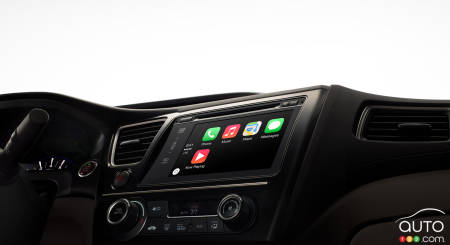Each generation of consumer has greatly influenced the automobile industry, but Generation Y and Z are likely to transform the industry at an unprecedented rate.
Over the coming decades, it won’t just be about the car: this time, the integration of telecommunication interface programs will be at the heat of the revolution. Driver’s consumer habits are already changing.
The first indications of a culture change appear, as they often do, in statistics. According to Edmunds.com, the average duration of a car lease is only three years now, and that has never been seen before.
That three-year timeframe closely matches the usage period of a Smartphone, at that point owners decide to replace it with something they consider newer and more efficient. It’s no coincidence that the consumer habits of Generation Y (born between 1980 and 1995) and of Generation Z (born after 1996) have seemed to spread from handheld gadgets to toys that weigh over a ton.
Previous generations could drive the same vehicle for 10 years and find themselves in a relatively familiar environment when settling down in a more recent version of the same model.
However, nowadays, jumping from one automotive generation to the next is often like getting into an entirely new line of vehicle with little resemblance carried over thanks to technological development and the like.
Autonomous systems, Internet connection, touchscreens, reverse cameras, motion detectors, biometric recognition, heads-up displays... These are only a few of the driving tools that, from the point of view of Baby Boomers and Generation X, seem to belong to the realm of science fiction.
That’s not the case for members of Generation Y and Z who, unlike their grandparents and parents, have lived their whole adult lives -- if not their entire existence -- in the era of Internet and connectivity.
That forces automobile manufacturers to quickly adapt to their new customer’s demands, who consider regular updates and rapid technological progress a normal part of modern life. A product containing electronic bits shouldn't remain static, after all! Actually, Generation X has a similar mindset…
Software updates can “renew” the car, like the release of a new operating system that improves the performance and usage of a product. We should therefore expect to see manufacturers -- following the steps of Tesla Motors for example -- making network connection to their vehicles a viable option in order to download updates aimed at improving the user experience behind the wheel.
All integrated systems must be designed in a way that any interaction with the touchscreen does not require more than two seconds. And to avoid further distractions, the driver will not have access to social networks nor video files through the dashboard. At least, not until autonomous driving is as reliable as cruise control...
For security and traffic-flow reasons, the concept of autonomous-drive cars is gaining ground. Some cars can already park themselves when the driver pushes a button, so why not push the experience further?
Setting the car on autonomous drive will be possible (in a relatively near future) on the highway. Drivers and passengers will eventually be able trust the sensors surrounding their vehicle, as they have been doing for some time already with cruise-control systems.
Sitting at the wheel of a car and not driving? Who would want such an “evolution?” The answer (as always) can be found in people's daily behaviour. Would a growing portion of the population, used to having their nose pointed at a screen, really be annoyed at letting the onboard computer drive on long highway trips?
Knowing that automotive engineers are working on the fusion between mobile devices and dashboards with Smartphone functions integrated into their car's, we can guess the manufacturer’s opinion on the matter.
This Generation Y- and Z-powered revolution also brings about the disappearance of systems that could be considered redundant. If everyone can plug a mobile device into the onboard computer, why have a GPS module in the car? And what can be said of the CD player, whose use is clearly on the decline and easily replaceable at a small cost by USB sockets or a Bluetooth connection?
However, car manufacturers, despite their speeches on the benefits of heightened driving security thanks to quicker-than-human reaction times, cannot ignore a very real fact: people of all age groups really like to drive.
Despite all the marvellous technology that will allow our cars to drive themselves while we conduct other business, there will come a time when we will want to shut down the options, take the wheel, and be master of our vehicular domain.
It is an impulse that transcends generations, after all.



